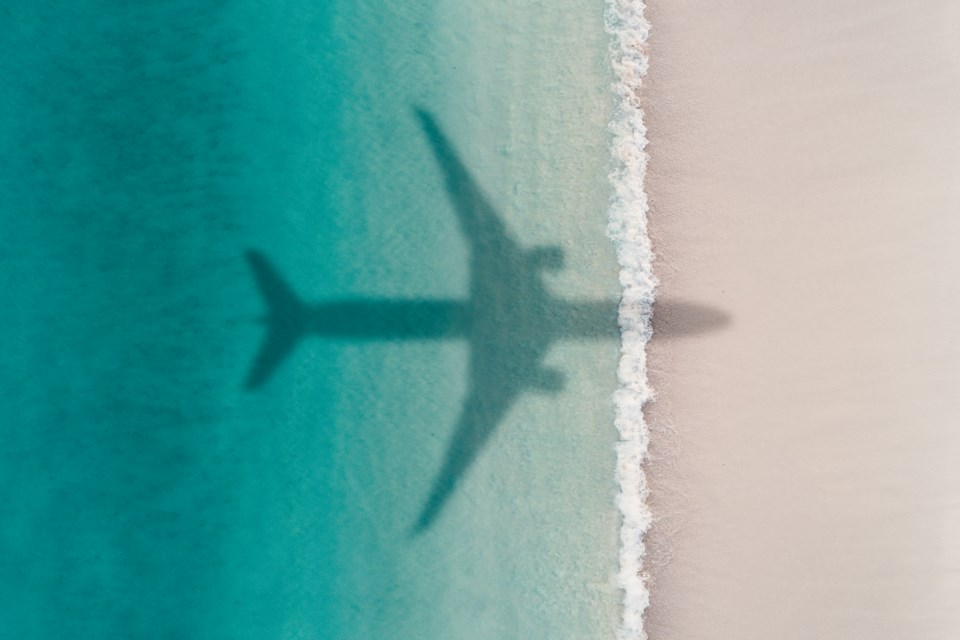Booking a vacation? Along with the price and quality of airfare, hotels and attractions, something to consider is the amount of preparation needed in advance.
Most destinations, with the exception of Taiwan, have dropped mandatory quarantining on arrival.
Rules differ for those who are vaccinated, compared with those who are unvaccinated. Some countries, such as Singapore, have exclusive online portals to upload proof of vaccination.
Those who do not want to deal with any testing requirements, or to fumble through figuring out how to digitally upload proof of vaccination into the appropriate platform may want to visit Mexico or the United Kingdom, given that those countries have dropped all COVID-19 entry restrictions.
Here is what Canadians can expect when travelling from Canada to destinations around the world.
• United States
The U.S. requires all non-immigrant, non-U.S. citizen air travelers to be fully vaccinated, and to show proof of their vaccination status prior to boarding airplanes to the country. The U.S. also requires all foreign nationals to be fully vaccinated in order to enter the country via land borders and ferry terminals.
Canadians do not need to show proof of a negative COVID-19 test, nor do they need to quarantine on arrival.
• Mexico
Mexico does not require foreign visitors to be fully vaccinated, or to show proof of negative COVID-19 tests in order to enter the country. Canadians also do not need to quarantine on arrival.
• Thailand
Starting July 1, Canadian visitors to Thailand no longer need medical insurance or to have what the country has been calling its Thailand Pass.
Canadians need to show a certificate of vaccination, or proof of a negative PCR or antigen COVID-19 test taken within 72 hours of their departure. No quarantine is required on arrival.
• Singapore
Singapore requires all visitors to be fully vaccinated and to have uploaded proof of vaccination to the country’s Vaccination Check Portal. Canadians need to first get a digital SMART Health Card in order to upload vaccine-status information into Singapore’s portal.
No proof of negative COVID-19 tests is required on entry, nor do visitors need to quarantine.
• Taiwan
Taiwan does not require visitors to be vaccinated. However, it requires visitors to provide proof of a negative PCR test taken within two days of boarding their flight to the country. Additional PCR testing is required at the airport on arrival.
The country requires visitors to quarantine for three days and then to abide by a four-day “self-initiated epidemic prevention period,” which entails avoiding going outside unless it is necessary. Those who do go outside to buy groceries or other essentials during this period must have a negative result from an at-home rapid test taken within two days. During the four-day period, masks must be worn at all times, even when outside, among other restrictions.
• Cuba
Cuba does not require Canadians arriving on direct flights from Canada to show proof of vaccination. Medical insurance is required and can be purchased in Canada or at the Cuban airport on arrival. No COVID-19 testing is required.
• U.K.
The U.K. does not require visitors to be vaccinated, to show proof of negative COVID-19 tests or to quarantine.
• France
France considers Canada a green, or relatively safe part of the world for COVID-19. As such, Canadians arriving in France from Canada do not need to be vaccinated.
Those who cannot provide proof that they are fully vaccinated, however, need to present proof of a negative COVID-19 PCR test taken within 72 hours of travelling, or proof of a negative antigen test taken within 48 hours of their flight’s departure.
The exception to those testing requirements is if the unvaccinated person has a certificate of recovery, which would be a positive PCR or antigen test result that is more than 11 days and less than six months ago.
• Australia
Unvaccinated people may enter Australia but will likely have to quarantine on arrival for 14 days at their own expense.
Vaccinated people need to show either paper or digital proof of vaccination when boarding their plane, and they may also be required to show it on arrival in Australia.
No pre-departure testing is required. Testing on arrival requirements depend on the state where the traveller is arriving.
Australia’s most populous state, New South Wales, does not require testing on arrival. Queensland, in contrast, does require proof of a negative COVID-19 PCR or antigen test taken within 24 hours of arrival.



